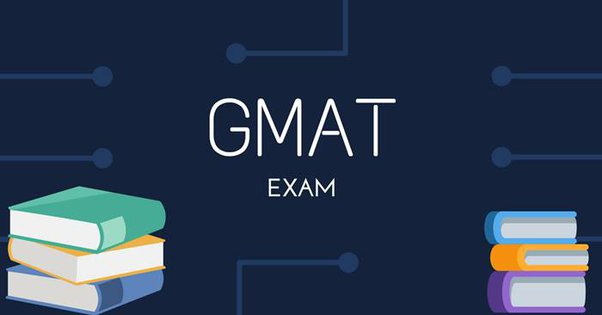The Jharkhand Staff Selection Commission conducts the JSSC JE examination to recruit candidates for the position of junior engineers in the government of Jharkhand for various departments. The examination requires you to attempt two papers and has a vast syllabus. Though it may seem tough to crack the examination, with the right guidance from BYJU’S Exam Prep, candidates can track the right path to qualify for the JSSC JE Exam. If you are an aspiring candidate and are planning to appear for the examination, here is the detailed syllabus for both papers to help you plan for the examination.
JSSC JE Syllabus
The JSSC JE syllabus shall have only ine stage of examination comprising of two papers.
Paper 1:
The first paper has 120 questions and can be segmented into General Engineering for 80 marks and General Knowledge for 40 marks. Candidates are given 2 hours to attempt the paper. The General Engineering segment consists of three main sections, Civil, Electrical and Mechanical Engineering. These sections are further divided into sub-topics and candidates are questioned accordingly.
Civil Engineering:
- Building Materials
- Surveying
- Costing & Valuation
- Hydraulics
- Soil Mechanics
- Estimating
- Environmental Engineering
- Transportation Engineering
- Structural Engineering
- Irrigation Engineering
Electrical Engineering:
- Basic Theory
- Magnetic Circuit
- Circuit Law
- Measuring Instruments
- Single Phase Induction Motors
- Synchronous Machines
- AC Fundamentals
- Measurement
- Electrical Machines
- Fractional Kilowatt Motors
- Generation
- Distribution
- Transmission
- Estimation & Costing
- Utilization & Electrical Energy
- Basic Electronics
Mechanical Engineering:
- Theory of Machines
- Theory of Machine Designs
- Strength of Materials
- Strength of Materials
- Properties of Pure Substances
- Law of Thermodynamics
- Air Standard Cycle for IC Engines
- IC Engine Performance
- IC Engine Combustion
- IC Engine Cooling & Lubrication
- Rankine Cycle of System
- Boilers
- Classification
- Specification
- Fitting and Accessories
- Air Compressor & Cycles
- Refrigeration Cycles
- Principle of Refrigeration Plant
- Nozzles & Steam Turbines
- Properties & Classification of Fluids
- Fluid Statics
- Measurement of Fluid Pressure
- Fluid Kinematics
- Dynamics of Ideal Fluids
- Measurement of Flow Rate
- Hydraulic Turbines
- Centrifugal Pumps
- Classification of Steel
Paper 2:
Selected candidates from Paper 1 are allowed to appear in Paper 2, which is an elective paper. This paper is specifically for graduate-level civil, mechanical and electrical engineering. Though the topics remain the same as Paper 1, the questions require understanding beyond the basic level and in-depth studying. As mentioned, it has three sections (Civil, Mechanical and Electrical) and candidates have to appear in the section of their specialisation that they choose as their elective. There are 120 questions and two hours to attempt the questions on the candidate’s chosen specialisation. In this paper, the syllabus can be divided into:
Civil Engineering:
- Building Materials
- Estimating
- Costing & Valuation
- Surveying
- Soil Mechanics
- Hydraulics
- Irrigation Engineering
- Transportation Engineering
- Environmental Engineering
- Structural Engineering
Electrical Engineering:
- Basic Theory
- Circuit Law
- Magnetic Circuit
- AC Fundamentals
- Measurement
- Measuring Instruments
- Electrical Machines
- Fractional Kilowatt Motors
- Single Phase Induction Motors
- Synchronous Machines
- Generation
- Transmission
- Distribution
- Estimation & Costing
- Utilization & Electrical Energy
- Basic Electronics
Mechanical Engineering:
- Theory of Machines
- Theory of Machine Designs
- Strength of Materials
- Strength of Materials
- Properties of Pure Substances
- Law of Thermodynamics
- Air Standard Cycle for IC Engines
- IC Engine Performance
- IC Engine Combustion
- IC Engine Cooling & Lubrication
- Rankine Cycle of System
- Boilers
- Classification
- Specification
- Fitting and Accessories
- Air Compressor & Cycles
- Refrigeration Cycles
- Principle of Refrigeration Plant
- Nozzles & Steam Turbines
- Properties & Classification of Fluids
- Fluid Statics
- Measurement of Fluid Pressure
- Fluid Kinematics
- Dynamics of Ideal Fluids
- Measurement of Flow Rate
- Hydraulic Turbines
- Centrifugal Pumps
- Classification of Steel
Attempting the JSSC JE examination is a must for all candidates who wish to have the junior engineer position in different departments of the Government of Jharkhand. All candidates must clear the first paper and choose the right elective for the second one. With BYJU’S Live Courses, Mock Tests and Study Material, candidates can have a clear idea of the syllabus, examination pattern and prepare themselves to complete the papers in two hours and attempt maximum questions. BYJU’S makes preparation accessible and now it can be done from home. Attend the sessions, read the material, study well and you are good to go.











Leave a Reply